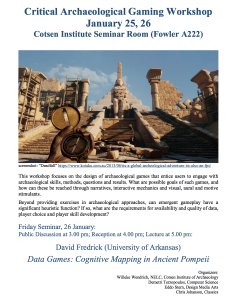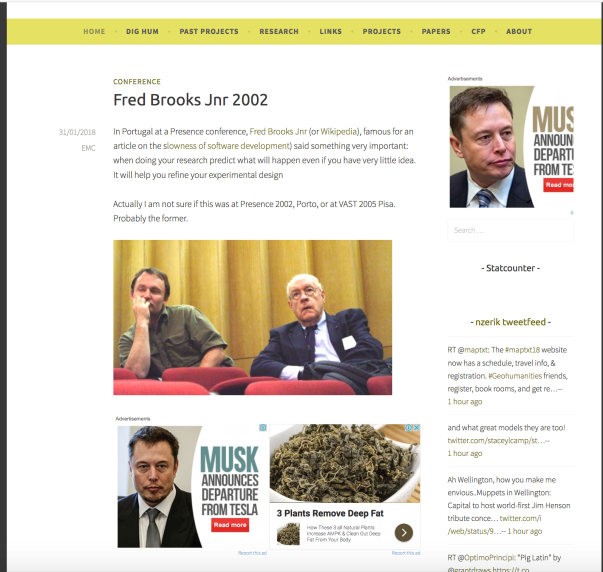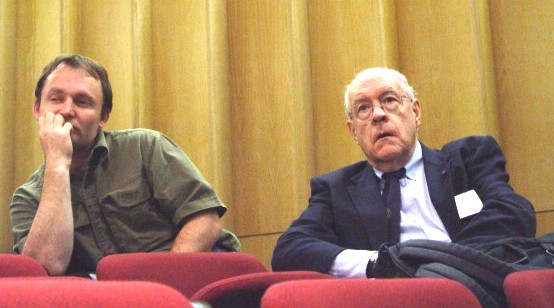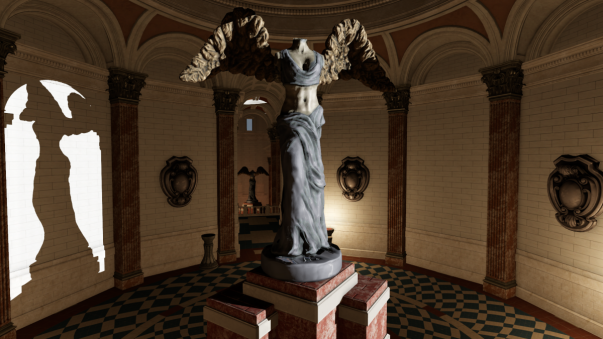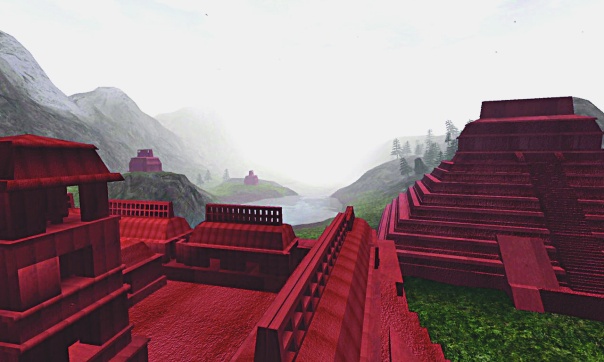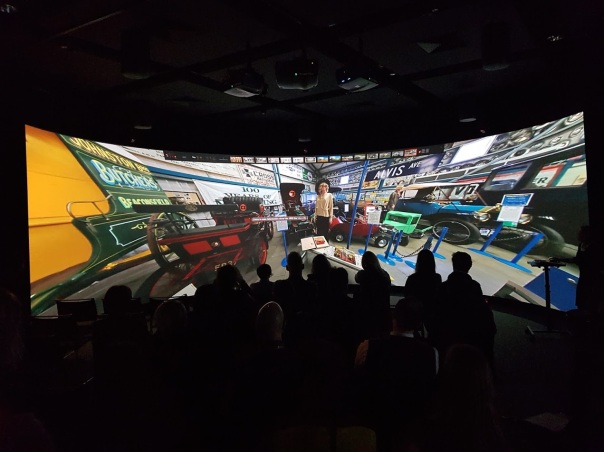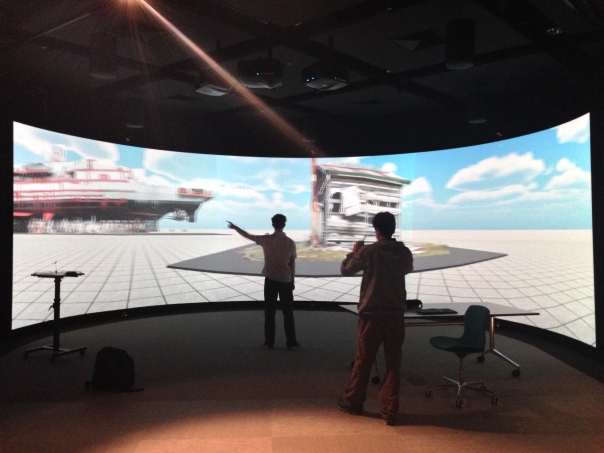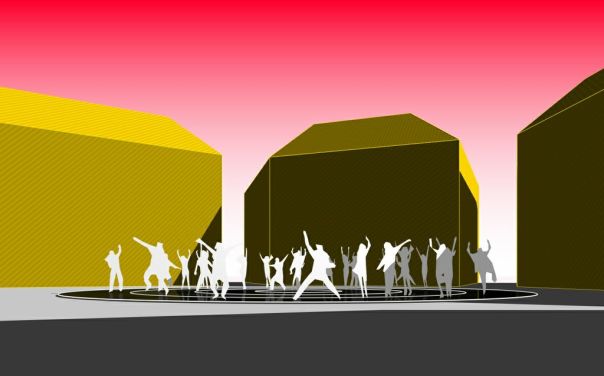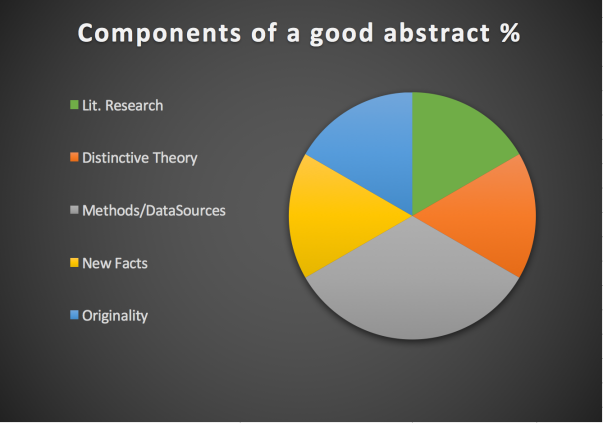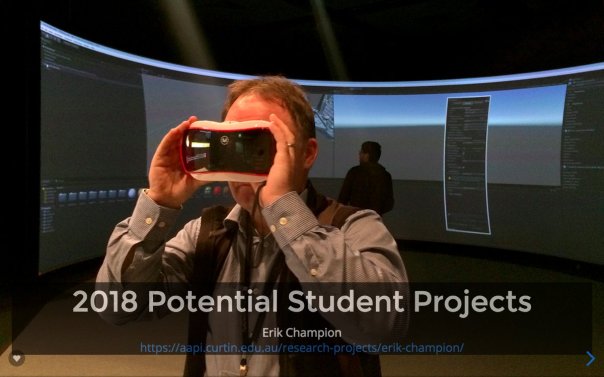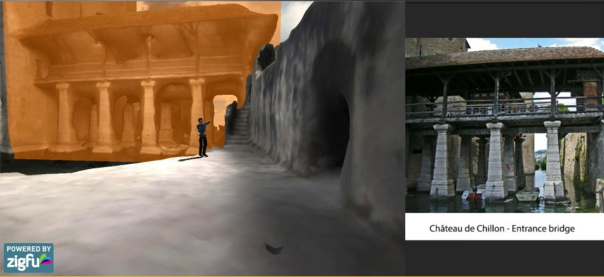Experiencing the Experience of the Past and
Experiencing Exhibition Portals of the Future from the Past.
[Notes on a potential future article of speculative/manifesto-oriented content, but where it fits with journals or conferences, I do not know].
Keywords: Experience, heritage, 3D models, experience of experience, Heidegger
In creating virtual heritage models and sites there is a typically recurring problem seldom discussed. In the midst of so many technical, conceptual and social problems I wish to highlight one of the most difficult, the experiencing of experiences.
Charters into digital heritage usually relate back to UNESCO’s concepts of cultural heritage, both tangible and intangible. And UNESCO’s concepts are predicated on the notion of communicating (local, past) cultural significance of the site: what was valuable and significant about it and how do we communicates its values?
Conversely, exhibition architecture celebrates the new, the inspiring, they act as gateway to a visionary future. How do we preserve communicate or re-establish their function and impact, as portals between past and future? They are generally forgotten and dismantled. But the experience of encountering them is never fully recorded, transmitted or preserved.
For Heidegger, the work of art (say, a Greek temple), does not just sit there, it provides a perceptual threshold through which the perceiver can suddenly encounter the shadow-furrowed outline of their past silhouetted against the blinding light of their future.
The power of the sudden vista is such that the very material of the temple (be it marble or some other shiny material) “causes it to come forth for the very first time” [PLT 46]. That is, on the edge of the bringing-forth of the work of art, one is carried away by the impression that the moment is unique: that the work is appearing before one in a way that will never quite be “caught” again.
Such an opening is not an object that is unrelated to the perceiver’s self-guided interests (as one might view the situation in terms of a Kantian disinterestedness), it is the revealing of those very same to all past theories of art and aesthetics. And in the very act of creating this realm, Heidegger claims that it might be significantly more tempting and worthwhile to the perceiver than even the phenomenal world that actually (tangibly) lies before them:
“Towering up within itself, the work opens up a world and keeps it abidingly in force…The world worlds, and is more fully in being than the tangible and perceptual realm in which we believe ourselves to be at home.” [PLT 44-45]
Can we recapture this? The problem, in other words, is how to communicate the experience, historically situated, in how people then experienced what was then fresh, new, revolutionary.
There are paintings, news clippings, sometimes audio interviews. But nothing together in an experiential gestalt that helps communicate what was new to them. Presence research does not help, it aims for a universal not situated measure of presence and immersivity. My concept of cultural presence also does not go very far, it may only apply to certain sites, and…
Do 3D models help? No, they are limited in terms of backstory, paradata (context), not experientially rich, lacking in interactivity and agency (not the same thing), no multimodality or gestalt framework (for reasons I will elaborate), and seldom have feedback. Here I will explain why the most basic elements of games, theme (fantasy, imagination), challenge (engaging difficulty), optional strategies that help develop intrinsic game-related growth and change…
But museums? Museums don’t have the time to enable the above! Well, they don’t have the freedom to allow users to develop the above (references to follow). Growth, deep understanding, all take time and reflection. The monumental, forgotten impact of old museums is disappearing…
There are examples in architecture (embodiment: Kathadaw Pagoda, caryatids; expression: Colosseum; innovation: Duomo of Florence, Hagia Sophia, Pantheon; sensory overload and uniqueness: Crystal Palace).
SO how can we relay and transmit the above?
- Biofeedback
- Paradata trails
- Backstory (incorporate witness and expert interviews)
- Historical mementos from different eras recapturing the apparent newness of the event
- Shareable experience indicators
References
Charitos, D. (1996). “Definining Existential Space in Virtual Environments”, Proc. Virtual Reality World 96, (Stuttgart: IDG Publications).
Heidegger, Martin, (translated by Albert Hofstadter), Poetry, Language, Thought, Harper and Row, New York 1975 [PLT]
ICOMOS, (1999).‘The Burra Charter: The Australia ICOMOS charter for the conservation of places of cultural significance’, http://www.icomos.org/australia/burracharter.html.
Nitsche, Michael. 2008, Video Game Spaces Image, Play, and Structure in 3D Game Worlds, MIT Press, USA.

